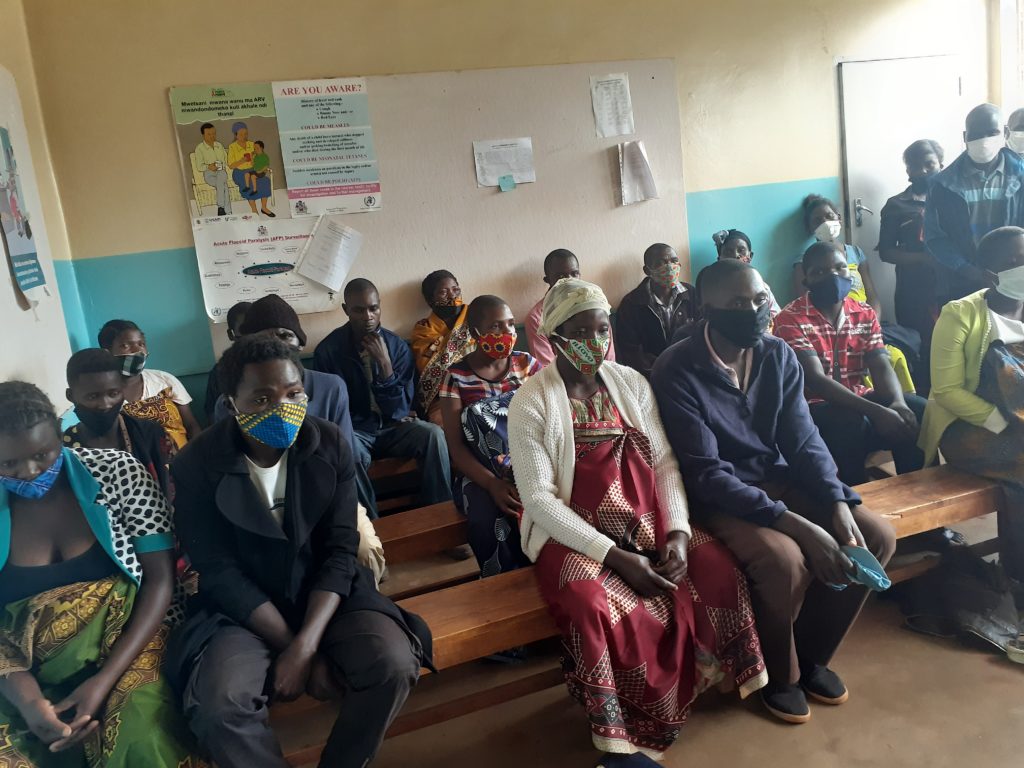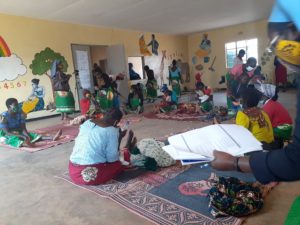MALAWI: SCORE ECD Exposes Capacity Gaps in Childhood Growth Among Urban Communities

Pilirani Tambala
An early childhood project by members of Association of Women in Religious Institutes of Malawi, AWRIM, has revealed the need to scale up initiatives for strengthening capacity on childhood development among urban populations often deemed as well versed with matters of childhood growth.
AWRIM Early Childhood Development Coordinator Sister Alice Mkandawire observed that there has been increasing demand from urban communities for extension and scaling up of the outreach Strengthening the Capacity of Religious Women in Early Childhood Development SCORE ECD project due to its impact.
AWRIM members including the Sisters of the Holy Rosary (SHR), Servants of the Blessed Virgin Mary (SBVM), and the Sacramentine Sisters have been implementing the SCORE ECD project in some districts in Malawi which is coordinated by the Catholic Relief Services (CRS) with support from Conrad N Hilton Foundation.
“The approaches that we have been using under the project such as ECD space in health facilities, care groups in villages and male involvement during antenatal clinics have been impactful,” observed Sr Alice Mkandawire.
Moses Shaba, a Health Surveillance Assistant at Katete Community Hospital in Mzuzu where Sisters of the Holy Rosary are implementing the SCORE ECD project cited the reduction of cases in the Nutrition Rehabilitation Unit (NRU) and Supplementary Feeding Program as fruits of some of the approaches being employed to strengthen childhood development.
 “In 2015, in the NRU department we used to have over 50 admissions every month but now we have none. Likewise, under the Supplementary Feeding Program, we used to have a lot of malnourished children exceeding 50 in number which have been reduced to less than five every month,’ he said.
“In 2015, in the NRU department we used to have over 50 admissions every month but now we have none. Likewise, under the Supplementary Feeding Program, we used to have a lot of malnourished children exceeding 50 in number which have been reduced to less than five every month,’ he said.
In addition, the project has helped improve sanitation, feeding practices and attendance in Under-5 clinics where using the ECD space, challenges delaying child growth are detected at an early stage before they turn into a lifetime disability.
Secretary General for AWRIM Sister Blandina Kamba said as the year 2021 approaches and before the project comes to an end, they are being compelled to mobilize resources for continuation and possible involvement of more Religious congregations.
“Apart from facilitating holistic approach to the services that the Sisters provide to communities other than spiritual, the project has helped the member congregations involved to develop systems for their sustenance,’ said Sr Kamba.
 The member organizations have established investments which are also helping scale up nutrition among children and improved health service delivery in the districts they are operating.
The member organizations have established investments which are also helping scale up nutrition among children and improved health service delivery in the districts they are operating.
“This has strengthened their capacity in serving the people, particularly children, as well as levels of their investments for sustainability. Our help usually comes from Europe but often it is not enough to support us improve our capacity and upgrade skills as Religious Sisters, hence the investments,” explained Sr. Kamba.
Above all, the SCORE ECD project according to Sr. Mkandawire has also helped bring unity among women Religious congregations through frequent interactions to resolve the social gaps and compliment spiritual service.
SCORE ECD, which is in the second phase of implementation was rolled out in 2014 in Malawi, Zambia and Kenya and expected to end next year, 2021.


